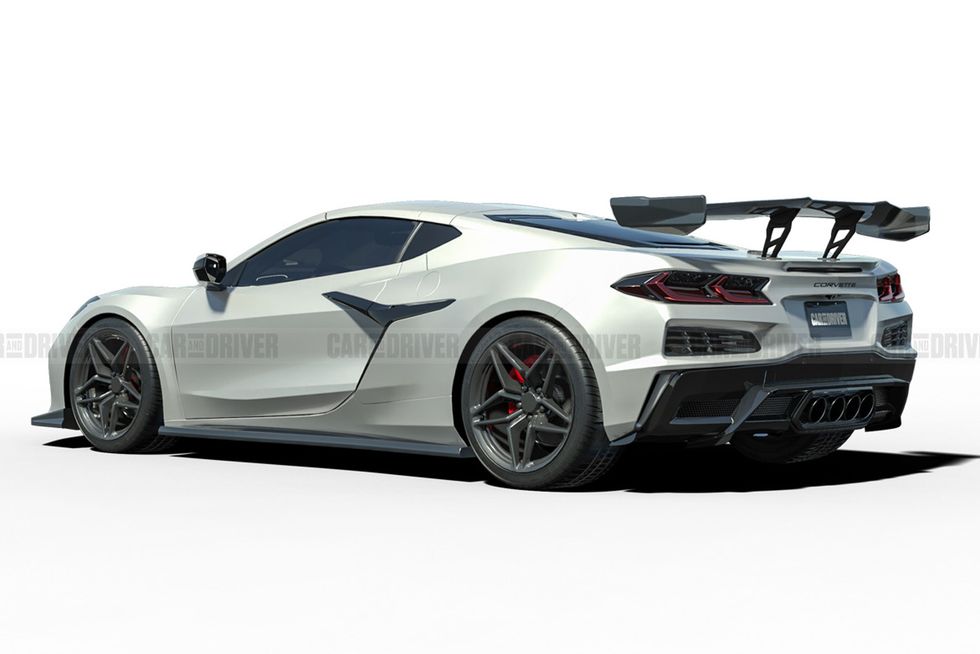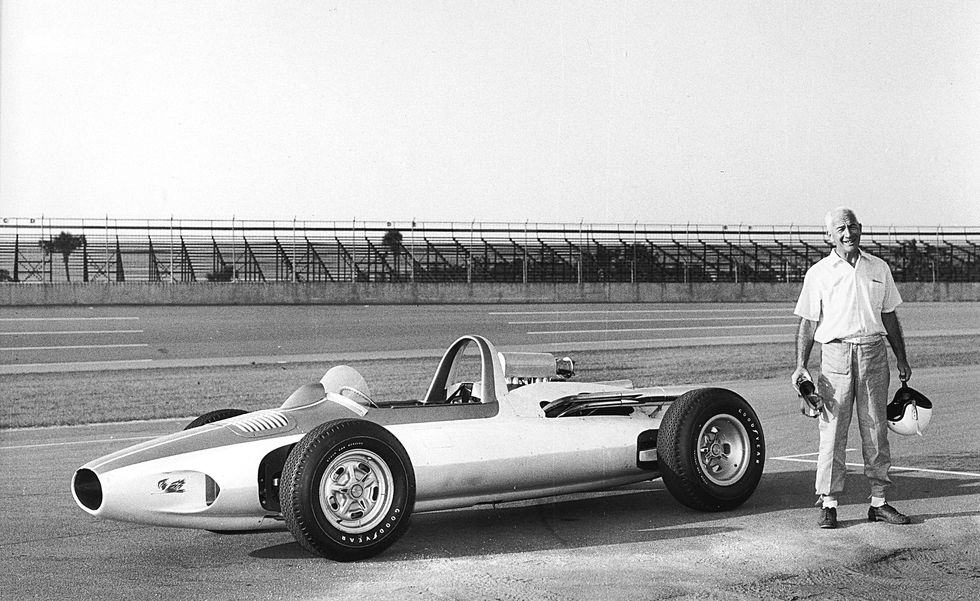From the May 2023 Issue of Car and Driver.
When the eighth-generation Corvette Stingray arrived for the 2020 model year with its engine behind the passengers and the proportions of a mid-engine Ferrari, a host of rumors rumbled down the road behind it. The Stingray, we heard, would ultimately go for the throat of Lamborghinis, McLarens, or anything with the word “hypercar” or “exotic” in its dating profile. Those whispers will become a reality in the next couple of years with the arrival of two ultra-high-performance Corvettes: the ZR-1 and the Zora.
The foundational elements of both cars are currently hiding in plain sight in the 2023 Z06 and the upcoming 2024 E-Ray hybrid. The ZR-1 and Zora both use much of the brilliant Z06 as a starting point, including a majority of its structure and its flatplane-crank V-8, wider body, huge tires, and carbon-ceramic brakes. Beyond that, though, the powertrains, performance, and purpose of the ZR-1 and Zora diverge.
The ZR-1
The ZR-1, which we expect to see as a ’25 model, takes those basics and adds firepower in the form of a twin-turbo version of the Z06’s 5.5-liter V-8, supposedly a stonker that belts out well over 800 horsepower.
Like the Z06, the ZR-1 will remain a rear-driver. It will probably incorporate active aerodynamic elements, such as a rear wing and a front splitter, and offer a Z07-style track package. Though its weight will presumably rise by about 200 pounds over a Z06 due to its new turbo componentry and greater powertrain-cooling requirements, we predict that the additional sting in its tail will enable it to lunge to 60 mph in about 2.5 seconds or less. It will be the quickest Corvette around a racetrack while remaining as comfortable on the street as a Z06. Its performance will put it in contention with everything from the McLaren 750S to the Porsche 911 Turbo S. But its base price—we estimate it at $150,000—will undercut competitors by tens or even hundreds of thousands.
The New Top Dog
Fittingly, Chevy will name its new top-dog Corvette the Zora, after its most famous chief engineer, Zora Arkus-Duntov. He was pivotal in dragging the Corvette out of the dark ages in the ’50s by blending high-tech features of the day—disc brakes, fuel injection, an independent rear suspension—with red-blooded American V-8 power. That’s exactly what the Zora will do.
Today’s new tech is electrification, and the Zora is a mashup of the ZR-1’s mechanicals and the 160-hp electric motor snuggled under the E-Ray’s nose. Add the E-Ray’s electric power to the ZR-1 engine’s output, and the Zora will be flirting with 1000 horsepower. It could weigh 4200 pounds, but with all-wheel drive aiding the launch, it’ll be the Top Fuel dragster of the Corvette lineup; we expect it to hit 60 mph in about 1.9 seconds and blaze through the quarter-mile in under 10 seconds at about 150 mph.
The Zora won’t be aimed at tearing around road courses, though; it’ll be a smartly dressed speed demon with a full complement of luxury features and a ride comfy enough for cross-country treks. It’ll deliver typical-for-Corvette value, starting at around $200,000. Its power and performance, however, will have it soaring in the hypercar stratosphere with more expensive hybrid rockets like the forthcoming electrified Lamborghini Aventador replacement and the Ferrari SF90 Stradale. A fine way to honor the real Zora’s legacy.
The Legend
Zora Arkus-Duntov is often credited with making the Corvette a world-class sports car. In his 22 years with GM, he worked almost exclusively on the Corvette, becoming the car’s chief engineer in 1967. Arkus-Duntov brought the independent rear suspension, disc brakes, and limited-slip differential to the Corvette. An avid racer, Arkus-Duntov won his class at Le Mans in 1954 and ’55 and set a Pikes Peak record that stood for 13 years in a pre-production ’56 Chevy four-door hardtop.
Director, Buyer’s Guide
Rich Ceppos has evaluated automobiles and automotive technology during a career that has encompassed 10 years at General Motors, two stints at Car and Driver totaling 19 years, and thousands of miles logged in racing cars. He was in music school when he realized what he really wanted to do in life and, somehow, it’s worked out. In between his two C/D postings he served as executive editor of Automobile Magazine; was an executive vice president at Campbell Marketing & Communications; worked in GM’s product-development area; and became publisher of Autoweek. He has raced continuously since college, held SCCA and IMSA pro racing licenses, and has competed in the 24 Hours of Daytona. He currently ministers to a 1999 Miata and a 1965 Corvette convertible and appreciates that none of his younger colleagues have yet uttered “Okay, Boomer” when he tells one of his stories about the crazy old days at C/D.
Read the full article here




